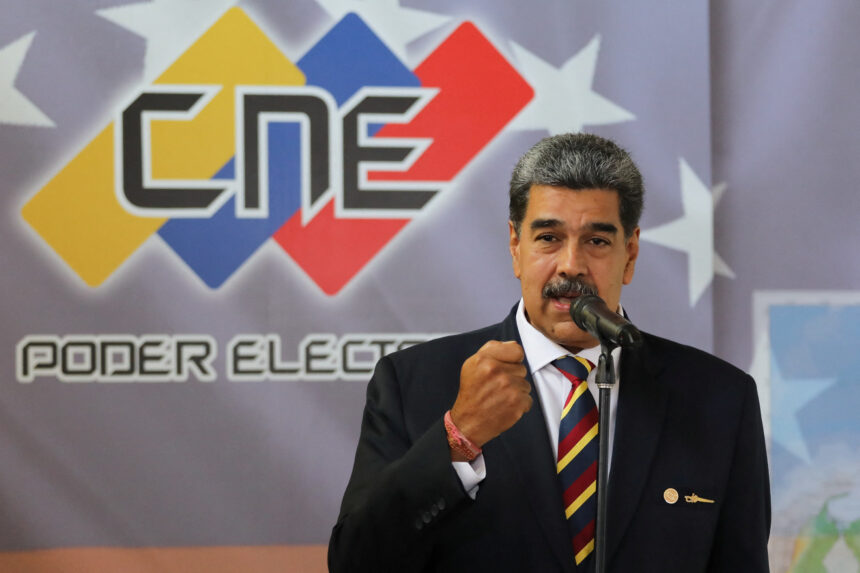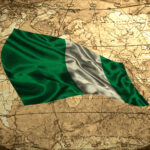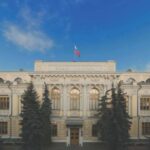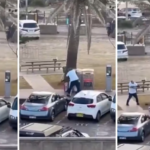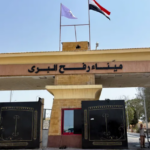Summary by Geopolist | Istanbul Center for Geopolitics:
The article “Will Maduro Hold on to Power in Venezuela’s 2024 Election?” by the Council on Foreign Relations examines the likelihood of Nicolás Maduro retaining power in the upcoming 2024 Venezuelan presidential election. The analysis includes several key points:
-
Current Political Landscape: Maduro’s regime has maintained power through a combination of authoritarian tactics, including manipulating electoral processes, suppressing opposition, and controlling key institutions such as the judiciary and the military.
-
Opposition Challenges: The Venezuelan opposition remains fragmented and weakened, struggling to unite under a single candidate or strategy. Past attempts at challenging Maduro have been met with significant repression and failed to gain enough momentum.
-
International Influence: International actors, including the United States and the European Union, have imposed sanctions and applied diplomatic pressure to isolate Maduro’s government. However, support from allies like Russia, China, and Iran has helped Maduro maintain his position.
-
Economic Conditions: Venezuela’s severe economic crisis, marked by hyperinflation, widespread poverty, and a collapsing healthcare system, has created immense suffering among the population. Despite this, Maduro’s regime has shown resilience, partly due to control over the distribution of scarce resources.
-
Election Integrity: There are serious concerns about the fairness and transparency of the electoral process. Past elections have been marred by allegations of fraud and irregularities, and similar tactics are expected to be used in the 2024 election to ensure Maduro’s victory.
-
Potential Scenarios: The article outlines several potential scenarios, including a continuation of Maduro’s rule through manipulated elections, a possible negotiated settlement leading to a transitional government, or a more unlikely scenario of regime change driven by domestic unrest or international intervention.
The article concludes that while there are significant obstacles to Maduro’s continued rule, his regime’s control over the political apparatus and the fragmented state of the opposition make it likely that he will retain power in the 2024 election.
For a comprehensive understanding, you can read the full article below.
On July 28, up to twenty-one million voters will pick a president and vice president in Venezuela’s most open contest in more than a decade. The increasingly authoritarian President Nicolás Maduro is seeking a third six-year term against opposition frontrunner Edmundo González Urrutia and eight other candidates. Under his rule, the economy more than halved, the political space closed, and many Venezuelans voted with their feet. Nearly eight million people, or around a fifth of the population, have left the country since Maduro first took office in 2013 in one of the largest displacement crises in the world. The majority have stayed in Latin America and the Caribbean; an estimated nearly three million live in neighboring Colombia alone.
Who are the main candidates?
Edmundo González Urrutia. A retired diplomat and relative newcomer to electoral politics, González Urrutia is the candidate for the Unitary Platform, the main opposition coalition. He currently commands a sizable lead in independent polls.
Nicolás Maduro. Incumbent since 2013, Maduro trails González Urrutia by around twenty percentage points in most independent polls, though some report the gap has shrunk since December.
The government approved the participation of eight other candidates who collectively poll around or below 10 percent.
Democracy. A potential opposition win would bring new possibilities for democracy and political stability. González Urrutia has committed to reestablishing independent institutions—courts, legislatures, and government agencies—restoring freedom of expression, and releasing all of Venezuela’s nearly three hundred political prisoners. On the other hand, some pollsters predict that his loss could wipe the opposition off Venezuela’s political map, making future democracy even less likely.
Economy. The opposition seeks to revive the economy after decades of government mismanagement and corruption that has shrunk the country’s gross domestic product (GDP) by roughly three-quarters, driven tens of millions into poverty, and pushed millions more to leave. More than 80 percent [PDF] of Venezuelans live in poverty and nearly 70 percent of hospitals lack basic services and medical supplies. And while the six months of U.S. sanctions relief boosted oil revenues, they failed to bring production over one million barrels per day.
González Urrutia has yet to lay out a formal economic plan, but he has aligned himself with Machado’s, which includes privatizing state-owned companies—the oil business among them. In addition to backing the transition to renewable energy sources, González Urrutia supports seeking loans from multilateral organizations to help settle Venezuela’s estimated $150 billion debt, an in-depth evaluation of operations at the state oil company, and mitigating the environmental and social impacts of the country’s mining industry.
Migration. If Maduro wins, it’s likely that millions more Venezuelans will join the nearly eight million currently living abroad. A May poll by Venezuelan firm Meganálisis [PDF] estimates around 40 percent of Venezuelans—some ten million people, many of them young—will consider leaving the country; most will end up in neighboring countries.
Others will travel farther, towards the United States. In 2023, more than 328,000 Venezuelans crossed the Darién Gap, a sixty-mile forest route between Colombia and Panama on the way to the southern U.S. border. Since October 2019, U.S. Customs and Border Protection has encountered upwards of eight hundred thousand Venezuelan migrants between legal points of entry. Over 450,000 have arrived in the United States since 2021 with temporary protected status, humanitarian parole, or refugee status, allowing them to stay in the United States for months or years.
Why are the elections happening?
The opposition has been virtually absent from elections since 2015, with the government banning most serious candidates, intimidating others, and rigging votes. In October 2023, Maduro agreed with the opposition to hold a competitive, internationally monitored presidential race in the second half of 2024. In exchange, the United States lifted sanctions on Venezuela’s oil and gas sector—its main export and revenue source—for six months with provisions to reimpose them if Maduro faltered on his democratic commitments. The opposition united behind presidential candidate María Corina Machado, a former lawmaker and longtime establishment critic.
But in January 2024, the government-controlled supreme court banned Machado’s candidacy, citing fraud, tax violations, and support for U.S. sanctions. The main opposition parties endorsed González Urrutia as a last resort, with the government having blocked Machado’s replacement just before the candidate registration deadline. In light of this, the United States determined that Maduro had failed to hold up his end of the democratic bargain and reinstated sectoral sanctions in April.
Will the elections be free and fair?
Venezuela has not seen a semblance of free and fair presidential elections since 2013, when Maduro narrowly won against opposition candidate Henrique Capriles. Even so, polls show González Urrutia poses real competition for Maduro. But a democratic outcome is still far from guaranteed, as the government is likely to continue suppressing votes, arresting journalists and opposition supporters, and banning others from holding or contesting public offices.
Many Venezuelans who are eligible to vote will not be able to do so. In an estimated population of nearly thirty million, the national electoral authority claims that around twenty-one million Venezuelans—or the vast majority of Venezuelans who are over the age of eighteen—have registered to vote. But independent civil society organizations and pollsters estimate that at least eight million eligible voters could not register, as they faced technical malfunctions, strict requirements, inadequate information, or—for those living abroad—limited consular staff. Of the some four million potential Venezuelan voters living abroad, just sixty-nine thousand have registered.
A lack of independent monitors could shield an unfair outcome from scrutiny. In May, the electoral authority rescinded its invitation to the European Union’s electoral observation mission, citing continued sanctions. Colombia and Brazil each declined to send an observation team. This leaves just the U.S.-based Carter Center and the United Nations as major international observers, with limited coverage and reach.
Maduro’s government is increasing the number of arbitrary arrests, attacks, and threats against government critics and opposition supporters. Human rights organizations counted more than four hundred [PDF] attacks on human rights defenders and opposition activists in the first three months of 2024 alone. Other nonprofits cite nearly fifty arrests of opposition ranks linked to Machado or González Urrutia. In late June, the government banned ten sitting mayors from holding office after González Urrutia and Machado held rallies in the mayors’ states. The government also pressures journalists into suppressing stories and arbitrarily arrests those investigating corruption.
What are the possible outcomes?
There are a few.
The election is relatively free and fair. If the race is competitive, Maduro will likely lose. Though less well-known than Machado, González Urrutia has frequently polled higher than 50 percent just two months after launching his campaign, and that lead could grow as he gains more visibility. Machado—who won the opposition primary with more than 90 percent of votes—has been campaigning for him around the country, boosting his profile while he stays relatively private.
If Maduro loses, he could negotiate a peaceful transition of power with the opposition. But he will likely only step down if the opposition presents him with a viable exit strategy. Maduro faces drug trafficking and corruption charges in the United States, and he could soon face a warrant from the International Criminal Court related to crimes against humanity. Human rights groups have tallied some forty-three thousand victims of human rights violations since Maduro first came to power. If he wins, González Urrutia plans to negotiate certain legal protections for the outgoing administration—including a potential amnesty—and regional presidents, including Brazil’s Luiz Inácio Lula da Silva and Colombia’s Gustavo Petro, have been pressuring Maduro to accept them.
It’s more likely that Maduro will manipulate or fight the outcome. His government could falsify final tallies or change millions of votes, as voting systems companies allege that it did in 2017. If the gap is too big to fake, Maduro has six months to fight the result in the courts he controls before a new administration takes over in January 2025.
Maduro tips the scales. Low turnout and the vast control of public resources could bring a victory to Maduro. Many of those who support the opposition or simply dislike Maduro may find voting useless or dangerous, as he commands the military, judiciary, congress, police, and violent paramilitary gangs. If voter turnout falls well below the projected 60 to 70 percent, González Urrutia’s substantial lead could shrink.
Add Maduro’s control of the media and government patronage programs, and even more votes could turn his way. The government has already spent billions of dollars since January raising minimum wages, propping up the national currency, and boosting the president’s image. And some 19 percent of voters still do not know who González Urrutia is, according to Meganálisis.
The government bans González Urrutia before the vote. The national electoral authority, courts, or congress—where Maduro’s allies hold a supermajority—could disqualify González Urrutia on a technicality. Two alleged government infiltrators have already filed legal complaints against the opposition, seeking to eliminate one of the parties on González Urrutia’s ticket. Authorities could otherwise disqualify González Urrutia by citing his recent refusal to recognize the results of an election on Maduro’s terms, or accuse him of a similar questionable legal breach.
by Shannon K. O’Neil and Julia Huesa

